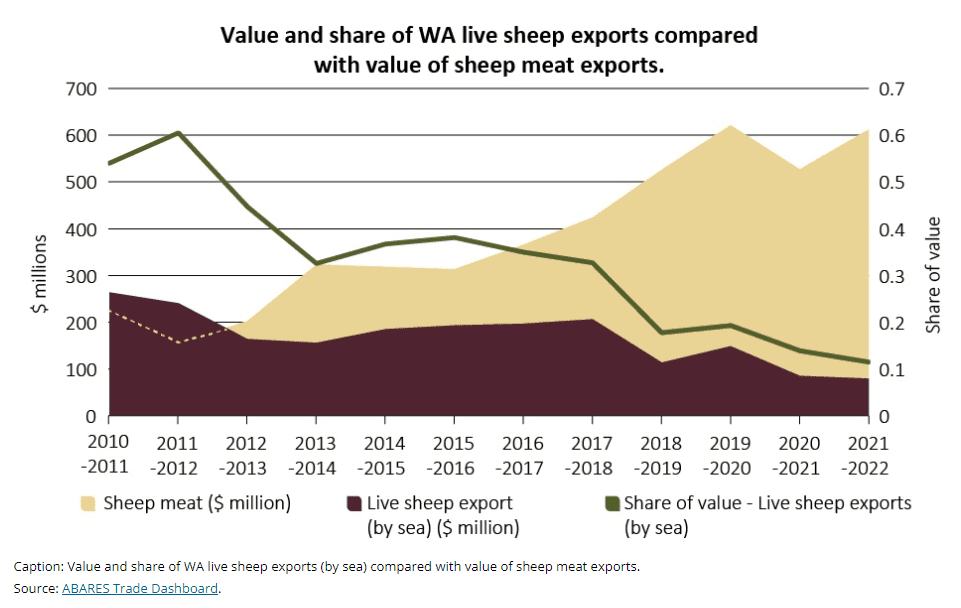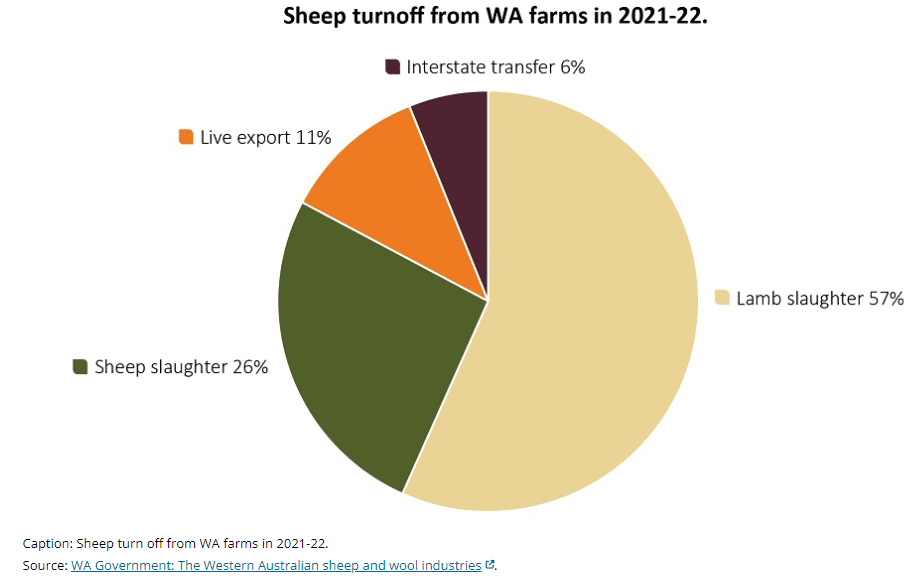
TENSION has increased around the Federal Government plan to phase out live sheep exports by sea, with the RSPCA on Thursday calling for a legislated phaseout date during this term of parliament, before the 2025 election.
Meanwhile, the National Farmers Federation has challenged the Federal Government to decide whether it supported Australian farmers and regional communities or “radical (animal welfare) activists” over the issue.
Coinciding with the latest update from the live sheep phaseout panel, the RSPCA also called for a phaseout timeframe of no longer than three years and a range of pre-phaseout limitations on the trade.
These limitations, outlined in the RSPCA’s submission to the panel, include expanding the Northern Hemisphere Summer prohibition, capping the number of sheep that can be exported during the phaseout, and increased monitoring on the voyages that do occur to assist protection of animal welfare while the trade is wound down.
The live export phaseout panel’s latest update said an overwhelming majority of those people who attended its public meetings voiced their opposition to the government’s decision to implement its election commitment and phase out live sheep exports by sea.
 The panel also report there was strong support for an early end to live sheep exports by sea from animal welfare bodies, with recognition that producers need time to adjust, or adverse circumstances could be created for existing stock.
The panel also report there was strong support for an early end to live sheep exports by sea from animal welfare bodies, with recognition that producers need time to adjust, or adverse circumstances could be created for existing stock.
The panel update and RSPCA submission release was answered by a statement from National Farmers Federation president Fiona Simson urging the Federal Government to decide if it “will support Australian farmers and regional communities or radical activists pushing vexatious and misleading agendas.”
Ms Simson noted the panel acknowledges the significant impacts on sheep and cattle producers, the wool industry, broadacre cropping, other businesses in the supply chain, wellbeing, communities, animal welfare, trade markets and more.
Ms Simson said the panel also found people were feeling “uneasy” and the “potential impacts on livelihoods has been unsettling”.
“This sentiment was reflected in three separate analyses recently released by Rabobank, jointly by Australian Wool Innovation and Meat and Livestock Australia, and Voconiq.
“The NFF stands with 24 other peak agriculture bodies and farmers across Australia to oppose the ban or any process to phase out the trade,” Ms Simson said.
“We knew majority of the community was behind us and this should be a reality check for the Government.
“The government now needs to make a choice, will it support Australian farmers and regional communities or radical activists pushing vexatious and misleading agendas?” she said.
“We’ve said from the beginning this is a red line issue for all of Australian agriculture.
“Let’s now see a red line drawn through this policy so farmers can get back to what they do best – producing food and fibre for Australia and the world.”
RSPCA commends Federal Government for ‘strong and continued commitment’
RSPCA chief executive officer Richard Mussell said the Federal Government is to be commended “for their strong and continued commitment to phase out this cruel and unfixable trade.”
“The independent panel, which is due to report to the Agriculture Minister by the end of September, has been given a clear brief — to come up with recommendations about how and when to phase out live sheep export, not if.
“We trust that our recommendations will help the panel to accomplish this,” he said.
“They’re recommendations which are based on the extensive and compelling animal welfare science, which tells us plainly and clearly that live sheep export is unfixable.”
The RSPCA is calling for a short-term phaseout period of no more than three years, from the passing of legislation in this term of parliament setting a phaseout date.
“This is crucial to give producers and everyone across the supply chain certainty; to make sure that this transition actually occurs; to demonstrate Australia’s commitment to animal welfare; and to reflect strong and consistent community expectations,” he said.
He said phaseout period of more than three years from the time legislation is passed provides sufficient time to modify supply chain operations to mitigate the increasing risk of further sheep welfare risks, and adapt to alternate markets.
“This is also consistent with previous independent economic analysis.
“We look forward to continuing to assist the independent panel in their work — and trust the government will legislate an end date for this cruel and unfixable trade as soon as possible.”
Exporters pleased panel has pulled no punches
Australian Livestock Exporters Council chief executive officer Mark Harvey-Sutton said he is pleased that it appears the live export panel will pull no punches in advising the government of proposed phaseout’s impacts and he did not envy the panel’s task.
“The government is going to face a choice: whether it supports Australian agriculture or not, when it responds to the panel.
“It is clear from the panel’s statement that the gravity of the phaseout commitment and how it will negatively impact Australia’s agricultural industry has been demonstrated throughout its consultation,” Mr Harvey-Sutton said.
“In the submissions published, there is a clear delineation between those from the agricultural sector and those from interests that are opposed to the trade.
“The submissions opposed to the trade have nothing meaningful or realistic to offer in terms of a transition,” he said.
“Instead, their arguments are emotive and based on unsubstantiated notions of community sentiment and science.
“Regrettably, the submission from the once well-regarded institution the RSPCA is one of those,” Mr Harvey-Sutton said.
“For all their espousing about having a long track record of working with farmers, their proposal for a three-year phaseout shows they simply do not understand how agricultural production works.
“In addition, their suggestion that the moratorium be expanded to six months demonstrates that unwillingness listen to the overwhelming science and evidence that the current moratorium timeframe works,” he said.
“Such zealotry from the RSPCA is a sad outcome for animal welfare in Australia, when it should really be an issue we work together on.
“Every single submission from the agricultural industry is opposed to the commitment to phase out live sheep exports, because we know that there is no way farmers will be better off without the live sheep industry.”
Mr Harvey-Sutton said the entire agricultural sector has been clear that this is a red line issue.
“The reasons for this have been repeatedly stated – closing an industry, in the face of such overwhelming reform, for political purposes is a concern for every agricultural industry that may have a social license challenge. What industry will be next?
“We know that our customers in the middle-continue to have strong demand for our sheep and this will continue,” he said.
“It is very important in a country where over 70 percent of our produce is exported that we listen to our customers.
“Particularly when these customers have worked alongside Australia to improve animal welfare in their countries – something our industry can be very proud of.”
Click here to read the RSPCA panel submission.
Click here to read the NFF panel submission.




HAVE YOUR SAY